External funding delays Mozambique’s development
Mozambique: Nyusi explains how capital gains tax will be spent – Watch
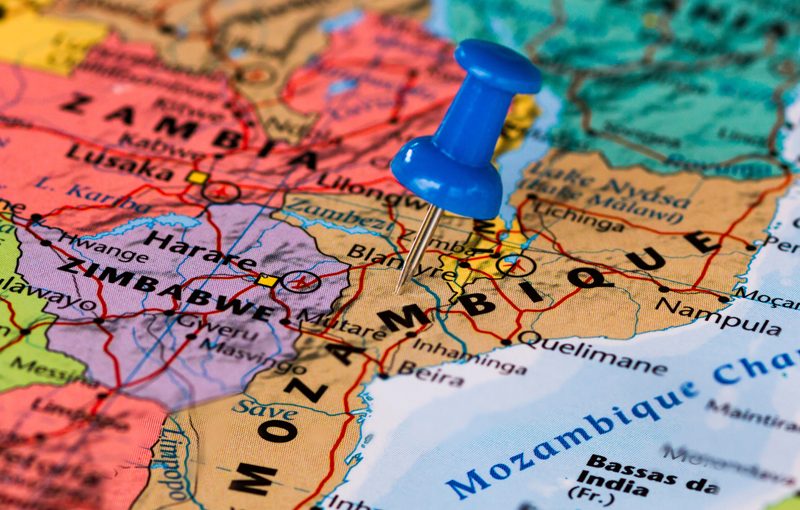
Mozambican President Filipe Nyusi on Saturday pledged transparency in the use of hundreds of millions of dollars to be paid in capital gains tax by the US corporation Occidental Petroleum.
On Friday, in the central city of Chimoio, Nyusi received the chairperson of Occidental, Vicki Hollob, and of the French oil and gas company Total, Patrick Pouytanne. This marked the conclusion of the deal whereby the assets of the Texas-based company Anadarko came under Occidental’s control, only to be sold on immediately to Total.
Occidental acquired all of Anadarko in a takeover concluded on 8 August. Anadarko and the company it set up to run the Liquefied Natural Gas (LNG) project in the northern district of Palma, Anadarko Mocambique Area One (AMA1), both continued to exist, but as wholly owned subsidiaries of Occidental.
At much the same time Occidental signed a definitive contract with Total, under which Total was to purchase all the Anadarko assets in Africa, including AMA1. Total agreed to pay Occidental 8.8 billion dollars for the Anadarko African assets.
Vicki Hollub told reporters in Chimoio that the transaction will result in the payment to the Mozambican government of capital gains tax of around 880 million dollars.
On Saturday, speaking at an election rally in the town of Espungabera, on the border with Zimbabwe, Nyusi gave a detailed explanation of how the government intends to use the money.
- Cyclones
First, it will be used to plug the hole in this year’s budget caused by cyclones Idai and Kenneth which hit the country in March and April. Those disasters cost the Mozambican state 16 billion meticais (about 258 million dollars, at current exchange rate) in lost revenue.
Nyusi said this sum will now be taken from the Occidental capital gains tax to make good the gap. A further six billion meticais will form a line of credit to support the companies damaged by the cyclones.
- Elections
The money will also be used to help finance this year’s general and provincial elections. Nyusi put the deficit in election financing at six billion meticais. Without the Occidental windfall, the government would have been forced to take money from other items of expenditure to pay for the elections.
- Debt to suppliers
A further 12 billion meticais, the President said, would go towards paying off the government’s debt to suppliers of goods and services – something which Mozambican private businesses have been insistently demanding.
Nyusi stressed that none of the money will go towards paying what he called “the undeclared debts”, but which are generally referred to in Mozambican political parlance as “the hidden debts”.
This term refers to the loans of over two billion dollars from the banks Credit Suisse and VTB of Russia to three fraudulent, security related companies, Proindicus, Ematum (Mozambique Tuna Company) and MAM (Mozambique Asset Management). The loans were illegally guaranteed by the government of the day, under Nyusi’s predecessor, Armando Guebuza, which meant that when the companies predictably failed to repay, the entire two billion dollars became a state liability.
- Budgetary reserve
The rest of the Occidental capital gains tax (14.46 billion meticais) will go towards the budgetary reserve – which could become the seed money for the sovereign wealth fund which the government intends to set up.
Nyusi also explained how the previous payment of capital gains tax (352 million dollars from the Italian energy company ENI) had been spent.
He said 70 million dollars had gone towards paying off some of the government’s debts to Mozambican suppliers incurred in the period 2007-2017.
Emergency rehabilitation of stretches of the main north-south highway, the conclusion of several district hospitals, the water supply programme known as PRAVIDA, and the conclusion of several general and professional schools between them accounted for 182 million dollars.
The remaining 100 million dollars, Nyusi said, went to the budgetary reserve.
“We shall tighten measures of transparency”, Nyusi promised, while at the same time working on the details of the future sovereign wealth fund.
He regarded the current investments in the natural gas projects in the Rovuma Basin in the far north, as the result of the confidence that investors have in Mozambique.
“Nobody invests without confidence”, he said.


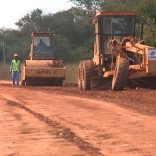
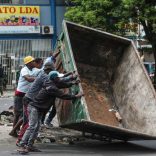
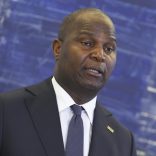
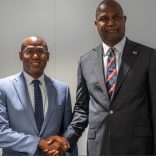





Leave a Reply
Be the First to Comment!
You must be logged in to post a comment.
You must be logged in to post a comment.